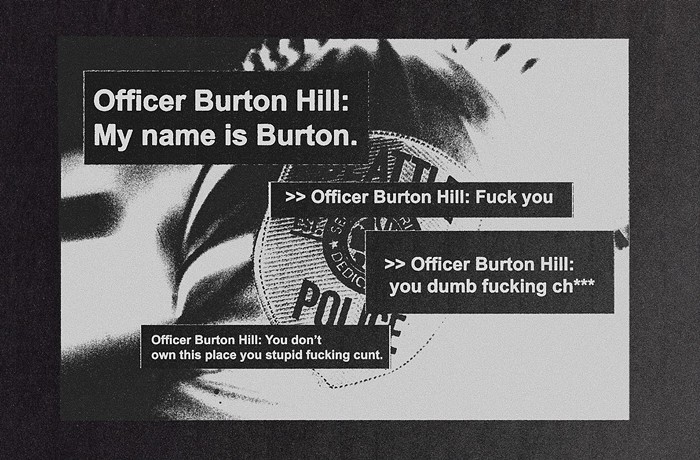Eight finalists for the city council seat left vacant by Teresa Mosqueda answered questions from the public last night at a forum in City Hall. Based on their answers, no candidate really represents the values that almost 60% of voters endorsed when they elected Mosqueda in 2021: more progressive revenue, more housing development, and less reliance on the carceral state.
Nevertheless, School Board Director Vivian Song set herself apart in the forum last night as the clearest advocate for progressive revenue and housing development. In recent days, as big business has rallied around failed council candidate Tanya Woo, labor and the urbanist left have coalesced around Song, even if she’s unlikely to become Mosqueda reincarnate. The political dynamic sets up the council with an ultimatum. If the new members want to shake their reputation as corporate stooges, they’ll pick Song. If not, then they’ll pick Woo.
The winner will get a say in how to deal with Seattle’s devastating budget deficit, the opportunity to overhaul old zoning laws, and contract negotiations with the Seattle Police Officers Guild, all areas where Mosqueda’s perspective will be sorely missed.
Revenue
While the forum mostly consisted of resume recaps and vague gestures toward “listening” to an unspecified “community,” moderator Alicia Crank asked several questions about budgeting.
The new council will have to balance Seattle’s $1.6 billion general fund in the face of a quarter-billion-dollar budget shortfall in 2025 and a similar gap in 2026. Mosqueda tried for months to pass a new tax to secure the revenue before she left the council, but ultimately she and her colleagues left the fate of public spending in the hands of new council members who mostly campaigned on an anti-tax platform. Yikes!
For the most part, the nominees will fit in with the tax-adverse council. Crank asked if, in light of the budget shortfall, the candidates support increasing taxes or making cuts. Every nominee said the City should search the couch cushions before imposing new taxes. Woo called progressive taxation a “last resort.”
The candidates mostly both/anded their way around the question, but later, a rapidfire question at the end of the forum drew lines in the sand. Crank asked the nominees if they support the proposals put forward by the Progressive Revenue Stabilization Workgroup, such as a capital gains tax and a CEO pay ratio tax. For “yes,” Crank instructed nominees to hold up a green paddle. For “no,” Crank told them to hold up a red paddle.
The Seattle Police Department’s Mark Solomon, Seattle Human Services Department’s Mari Sugiyama, and Song held up a green paddle to support progressive taxation. Civic Hotel owner Neha Nariya, Captain Steve Strand, former congressional staffer Linh Thai, blood donation advocate Juan Cotto, and Woo held up red paddles, meaning they do not support the progressive revenue proposals.
Rapid fore questions focused a ton on trees and the candidates looked confused. Here's who supports progressive revenue proposals from the recent taskforce. https://t.co/u1QViBjwXM Strand also held up red for "no." pic.twitter.com/eIY9NxT5wJ
— Hannah Krieg (@hannahkrieg) January 19, 2024
Even though Nariya, Strand, Thai, Cotto, and Woo do not support new progressive revenue, they failed to propose any specific cuts in an earlier question. People. You cannot have it both ways. The anti-tax squad all want to “look” at the budget for redundancies, inefficiencies, and programs that don’t deliver results. Strand, to his credit, specified that he would not cut funding to public safety, particularly the heavy police presence at 12th & Jackson and 3rd & Pine.
Zoning
The new city council will also have to pass a new Comprehensive Plan, which sets allowances for development across the city. You can blame the architects of Comp Plans past for the housing crisis of today. It is that serious.
Crank asked the nominees to name neighborhoods the City should exempt from upzones related to House Bill 1110, a recently passed state law that legalizes duplexes and fourplexes in most areas in Washington.
Thai, Nariya, and Song said that no neighborhood should be exempt amid a housing crisis.
The other nominees skirted around the question. They did not name specific neighborhoods, and instead leveled broad concerns about gentrification and displacement. While they did not name strategies to combat displacement, Song pushed back, arguing that the zoning changes would not happen “overnight” and so the City would have time to mitigate gentrification while also combatting the housing affordability crisis.
The issue of development may present the widest chasm between frontrunners Song and Woo, who actually advocated for “downzones” in an early interview with The Stranger. Song, on the other hand, runs in urbanist circles, endorses strong density advocates like District 4 candidate Ron Davis, and, most importantly, supports sweeping zoning reform, as she said in the forum.
Song presents the new council with an opportunity, particularly for Council Members Cathy Moore and Joy Hollingworth, to show their support for density, or at least a willingness to entertain a strong, urbanist perspective. Both Moore and Hollingsworth tried to fight back against NIMBY impressions—the Urbanist gave Moore a “hello, fellow kids” post, and Hollingsworth wrote an op-ed defending herself against a story by The Stranger about her anti-density advocacy in 2017. Picking Song could prove that Moore and Hollingsworth aren’t as afraid of development as some believe.
Cops
Surprisingly, cops didn’t come up in the forum! Like, at all. But it seems as if even the most lefty of the two nominees, Song and Sugiyama, won’t take too hard of stances against our boys in blue. Again, in this way, the nominees feel out of sync with the popular council member they would replace.
In 2020, Mosqueda proposed a cut to the Seattle Police Department’s hiring budget. It failed, and, after the protests ended, many of her colleagues started backing the blue once again. But she kept the spirit, railing against hiring incentives when Council Member Sara Nelson proposed and eventually passed them in 2022 in effort to hire the Mayor’s goal of 1,400 cops.
Song wrote in her application that Seattle needs a police force “scaled to the size and needs of a growing city,” which sounds like a call for more cops. Song declined my request for an interview, so that’s really all I know about her stances on policing.
Sugiyama, in a phone call with The Stranger, said she supports the Mayor’s goal of hiring 1,400 cops, though she’s not sure how to get them other than through hiring bonuses that have yet to solve the (subjective) staffing shortage. She said it's “best not to look at [the department’s] budget” until the Seattle Police Department reaches that number—it wouldn’t be fair to make cuts until they have the number of cops they want.
Mosqueda also took a hard stance against the controversial bill to criminalize public drug use, which the council passed last year. Again, no word from Song, but Sugiyama told The Stranger she would have supported the drug bill.
While the public does not have complete information about all the nominees, it's clear from the answers in the forum and from labor’s blessing that Song would be the most similar to the council member who left the seat. But don’t expect Mosqueda’s endorsement for anyone. She told The Stranger she’s staying out of it. The new council expects to appoint one of the eight nominees on Tuesday.




















